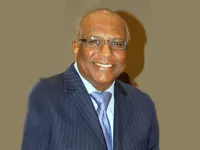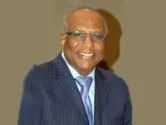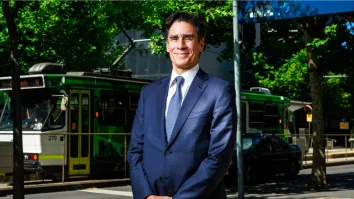
Operational leadership in retail banking – The last frontier for profits
By Abdul RahmanLeadership, a clear and consistent message, and employee involvement are the keys to productivity in the workplace.
The last frontier for profit is people’s productivity. Leaders expect changes and increased productivity. Conventional managers solve that by giving the employees and middle managers more and more tasks to do, not taking away tasks nor involving people first.
People want to do a good job so they try their utmost to cope. People often don’t know if it is temporary, if and when they are doing a good job or the “why” of it all. In between, a lot of time is used at the coffee machine talking to other people about why all this is happening; or wondering on their own.
Imagine that you are frustrated and typing in the CRM system or preparing for a customer meeting and you can’t help inner dialogues popping up about: “Will I manage to meet what is expected? Will help come from somewhere? Why does the manager keep on expecting more from us?” All of these inner dialogues take time away from being focused on the job that has to be done. Imagine then how many people this person talks to and count the hours of lost productivity.
The best managers are focused on customer experiences and explain why a change is important in such a personal way that people are able to become emotionally engaged in the change. They are involving people to co-create solutions, are recognizing and appreciating people for their achievements and their learning, and are taking tough decisions on prioritizing tasks. They are also “on the floor,” close to their people and processes to help others prioritize and develop their strengths and potential; acknowledging that employees are experts at their own jobs. Last but not least, they are able to continuously develop their own personal skills in understanding how people get engaged in different ways and what they need to excel in what they do.
People have strong values and feelings, and a manager needs to be deeply interested, to decrease frustration and increase productivity.
Bankers are salesmen delivering great customer experiences, no matter where in the organization they are positioned. Any value chain must lead to the end customers and any process must support the value chain. This is the dream for most leaders and should be an obvious statement for any manager and employee to understand and work towards.
The dream is unfortunately complex and, once you accept that, you can focus on being effective as a role model for middle managers and employees in the complex world. You have two important tasks to do:
1. Set a clear direction
2. Help people develop and succeed
These two tasks are the same no matter on which level you are as a manager. The best managers are those who can balance the two in a clever way. But most managers are more focused on just one of them, depending on their preferences.
As a one-dimensional manager, then, you do not get far. You must train to be accomplished at both. There are three important tools you can use and develop: Your storytelling, your ability to facilitate that people get involved and trained and your ability to coach and give feedback in regular meetings with your employees.
“Dance” with the employees to increase performance
The first thing to do is to acknowledge that people are different -- Not machines – just complex people. Find out what people’s intentions are as a way to understand their behaviour. You can only do that by being close and asking people personal, yet work-related, questions.
The second thing is to acknowledge that any manager is a disturbance and the farther away you are, the more likely you are to disturb. This seems to be a contradiction, but it is not.
People listen to your storytelling when you set the direction and they are looking for the “Why?” and “What’s in it for me?” to engage in your story. Are you able to communicate to both the brain and the heart? Can people emotionally commit to the story you are telling? Is your story so important to you and will it make such a positive difference to the company that you can’t help telling the story? When people ask themselves why they should get involved in a change, there must be a good reason. If not, you lose productivity because people are occupied with telling their own stories and not focused on working.
The third thing is to acknowledge that people want to be co-creators of any change in their workplace. If you do not ask how people feel and think about a certain change and you do not invite people in to co-create, the storytelling at the coffee machine will most probably not be to the benefit of the change.
Ask yourself how connected you are to people when telling your story about past successes and future changes. You will only know the other side of the story if you ask and if people trust you enough to say the truth. Don’t believe that your “my door is always open” attitude will encourage employees to tell you directly if they do not like or cannot adjust and work according to your messages. Meet your employees in regular meetings where you give each other feedback, where you celebrate successes and where you coach the employees to be even better at what they do.
The simple rule of role-modelling
If you want people to change, do it yourself. Show how you succeed and how you fail. Be courageous enough to ask for your direct reports’ feedback and show them how passionate you are about your own continuous learning to be an even better manager. Recognize and appreciate people for how they engage in the change, what they succeed with, and what they try. Let every failure be a gift and an opportunity to learn. Listen to all the good stories and help people deal or avoid challenges.
There is not a lot of difference between what a top executive and a first line manager in Retail Banking has to do. It is all about understanding the customers’ dreams and increasing efficiency in the value chain. It is about being close to people, setting a clear direction that people can engage in, prioritizing and helping people develop themselves. The only thing that is different is that a top executive has a larger value chain to monitor than a first line manager. Both managers share the important responsibility for great customer experiences.
Operational Leadership is just one of the topics covered in the IARB Fast Track Expert Programme running in London 24 – 28 September, 2012.
Abdul Rahman, Academic Director, International Academy of Retail Banking, a Division of the Lafferty Group.





















 Advertise
Advertise











